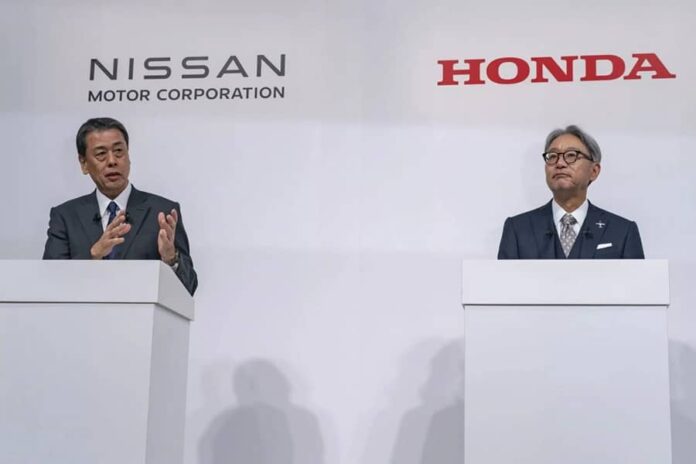Honda and Nissan have officially decided to start discussions over the next six months about a potential merger. If this deal goes through, it would make them the third-largest car manufacturer in the world, giving them a better shot at competing with the rising challenge from Chinese auto companies.
Mitsubishi, a smaller Japanese automaker already partnered with Nissan, will also join in on these talks. If they do merge, they’d only be behind Toyota and Volkswagen in terms of global sales.
Mergers in the automotive world aren’t exactly a new thing; they’ve been happening since General Motors (GM) started acquiring various brands way back in the early 1900s. However, bringing different companies together can sometimes be tricky!
Back in 1998, Daimler-Benz decided to purchase Chrysler Corp., but just ten years later, they ended up splitting up. Chrysler then went on to file for bankruptcy and needed a federal bailout within two years.
Fast forward to 2001, and Chrysler merged with Europe’s PSA Group to create Stellantis, but that partnership has faced its own struggles recently with declining sales and profits.
On a different note, Nissan’s collaboration with Renault wasn’t an official merger, but it ultimately fell apart after Nissan’s CEO Carlos Ghosn was arrested in Japan for serious financial misconduct—he even managed to escape the country before facing trial!
Now, as the auto industry shifts from gas-powered vehicles to electric ones and contends with stiff competition from Chinese manufacturers who are ahead of many Western companies in this transition, both Honda and Nissan realize they need to pool their resources if they want to stay competitive.
Today is a crucial day, said Nissan CEO Makoto Uchida in a statement about their ongoing talks. Together, we can offer customers something special that neither of us could do alone.
Nissan has been having a tough time since its alliance with Renault fell apart; it’s been grappling with major financial troubles that make finding another merger partner critical.
In fact, profits dropped by an alarming 94% in the six months ending September compared to the same period last year—they lost money on car sales but managed a slim profit through financing operations.
As a result, Nissan announced it would reduce production by 20% and lay off 9,000 employees while slashing its full-year profit forecast by 70%. Some analysts even think Nissan could face bankruptcy as early as 2026 when it has significant debt due.
The potential Honda-Nissan partnership might spark more mergers across the industry moving forward. Adam Jonas from Morgan Stanley noted last week that traditional automakers not seeking new partnerships risk becoming smaller players burdened by higher costs for capital and research per vehicle sold.
He pointed out that we’re entering a new era where cooperation is key if companies want to scale up effectively amidst broader consolidation trends—those who opt out will likely find themselves shrinking over time!
